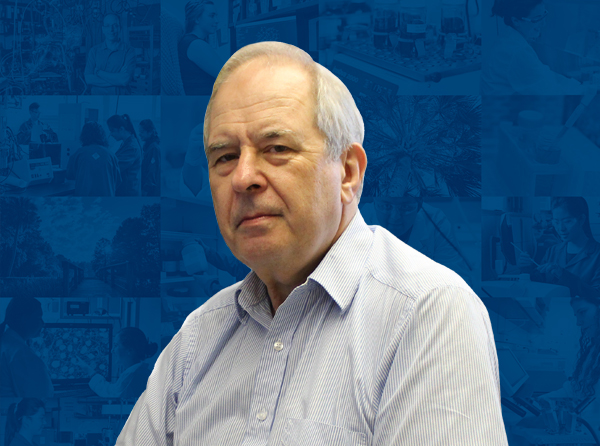UF Department of Chemical Engineering Professor Tony Ladd, Ph.D., received a 3-year, $516,000 grant from the U.S. Department of Energy (DOE) to advance the understanding of how slightly acidic water dissolves porous and fractured rock as it permeates through it.
Advances in this type of research could allow society to continue to burn fossil fuels without adding net carbon dioxide into the atmosphere.
“As scientists, we tend to take a longer-term view. Even if we stopped emitting carbon dioxide tomorrow, we still have to get rid of significant amounts of carbon dioxide from the atmosphere,” said Ladd.
By using chemical engineering principles – fluid flow, transport, and reactions – Ladd will create computational tools and develop benchmark simulations to validate upscaled models of reactive transport in porous media. The small-scale computational models are being validated by comparison with microfluidics experiments at the University of Warsaw.
“Dr. Ladd’s research will yield advanced computational tools that can be used by other scientists to advance the application of carbon dioxide sequestration to reduce atmospheric carbon concentrations,” said Carlos Rinaldi, Ph.D., Chair of the Department of Chemical Engineering.
This grant is part of a larger collaboration with Piotr Szymczak, Ph.D., at the Institute for Theoretical Physics, Faculty of Physics, University of Warsaw, Poland.
Dr. Ladd also wishes to acknowledge contributions by Vitaliy Starchenko, Ph.D. His work with the core coding supported the current grant application. Starchenko worked as Ladd’s postdoctoral associate from 2014-17. He is now at Oak Ridge National Laboratory, where their collaboration continues.

